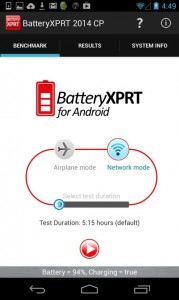Last week, one of our community members asked for a couple of enhancements to WebXPRT. They wanted WebXPRT to be easier to automate, and they made two specific requests:
- Add debug/result logs
- Add the ability to start the test without UI interactions, by using a specific URL or a command line
This is a great example of why we put so much emphasis on the community. We have tried to make the BenchmarkXPRT benchmarks easy to use, but we don’t always face the same testing demands you do. If there’s anything we can do to make these tools more valuable, please let us know by posting on the forums or e-mailing us at benchmarkxprtsupport@principledtechnologies.com.
We are adding those abilities to the upcoming WebXPRT 2014 community preview. Speaking of the community preview, we have been working hard on it, and in the next few weeks, we’ll be talking about what will be in it.
Keep those requests coming!
Eric














